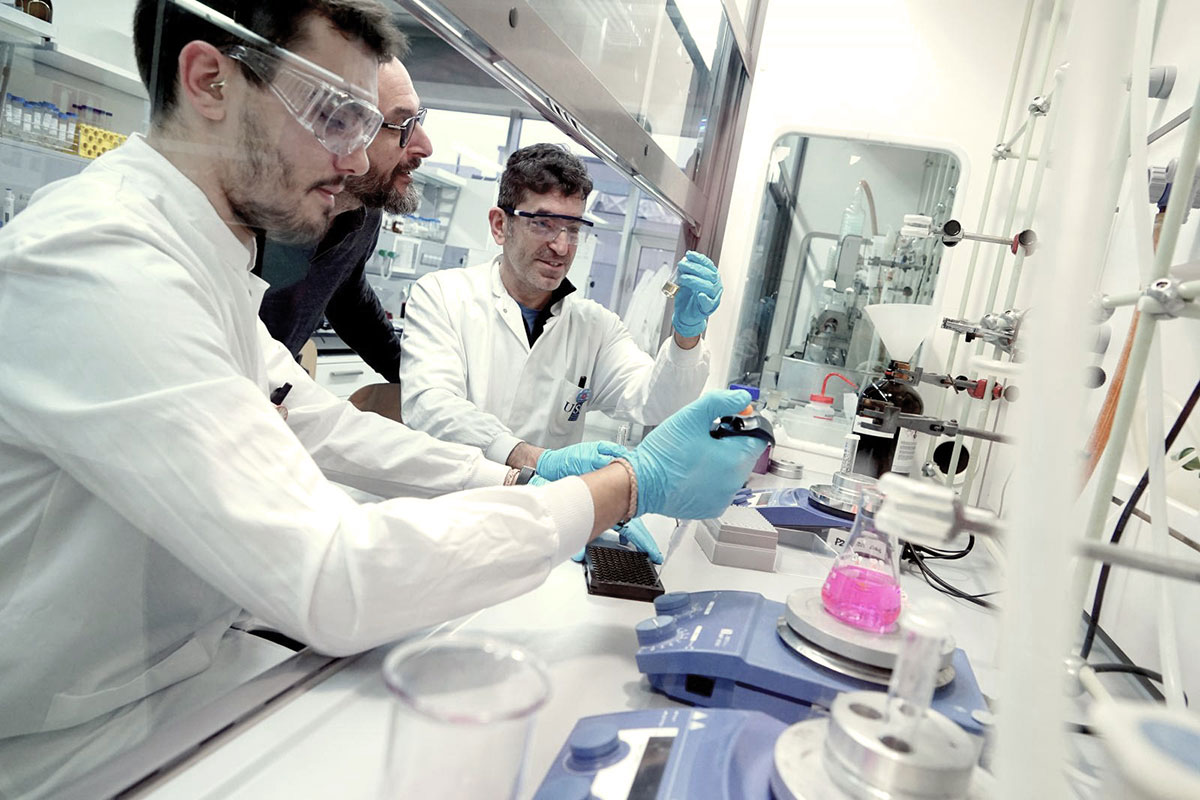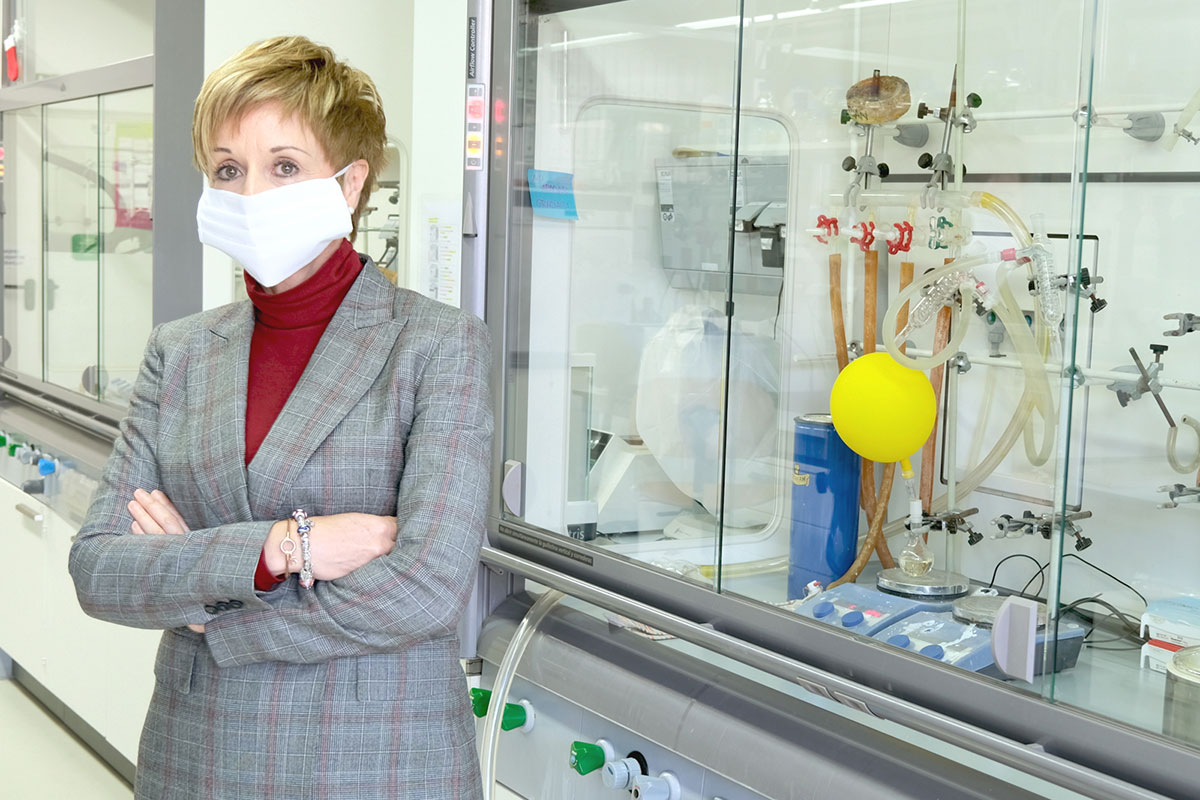- Fernandez-Megia´s project will focus on early diagnosis of the virus, while the project led by González-Bello will study new antiviral agents
Four research projects in the Universidade de Santiago de Compostela (USC) have just received funding from the Axencia Galega de Innovación (GAIN) through COVID-19 GAIN Rescate ISCIII call. Two of these studies will be developed at CiQUS.
Antigen Detection
Eduardo Fernandez-Megia´s project aims to designing SARS-CoV-2 early diagnosis techniques and will be focused on developing rapid methods to complement the PCR test “which, despite its high sensitivity, is slow and expensive analytical technique that requires large equipment and a microbiology laboratory” explains the CiQUS researcher.
Affidendrons result in a powerful tool for the rapid and selective targeting of pathogens. These structures are multivalent conjugates incorporating small affinity proteins named Affitins around a dendritic scaffold. As a result of the multivalent presentation, their affinity increases exponentially. “These properties, combined with Affitins high specificity, smaller size than antibodies, higher stability and lower cost-effective production, make them interesting for developing antigen detection methods, similar to conventional pregnant tests, for the early diagnosis of COVID-19” Fernandez-Megia said. The project aims to develop Affidendrons that recognize the spike protein on the virus surface.
Antivirals
On the other hand, the project led by CiQUS researcher Concepción González-Bello will focus on the “deactivation” of the immune response at molecular level, applying computational and biotechnological tools.
Antimalarial drugs chloroquine and hidroxichloroquine, are both aminoquinolines that might be effective against COVID-19. The team will now analyse the strength of other aminoquinolines structurally similar to the aforementioned. The benefit of these new “anti-viral agents” is their power, “which could help to significantly reduce potential adverse effects due to the lower doses employed” said project leader. Its potential activity against the virus will be assessed during the study and its effectiveness will be optimized.

Eduardo Fernández-Megía and his team. (Image taken before SARS-CoV-2 pandemic. Photo: Andrés Ruiz).



